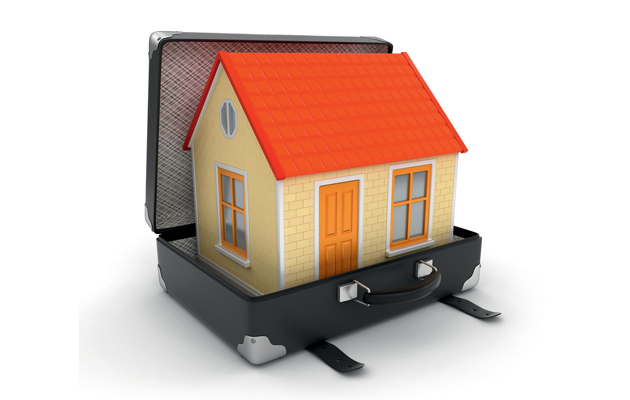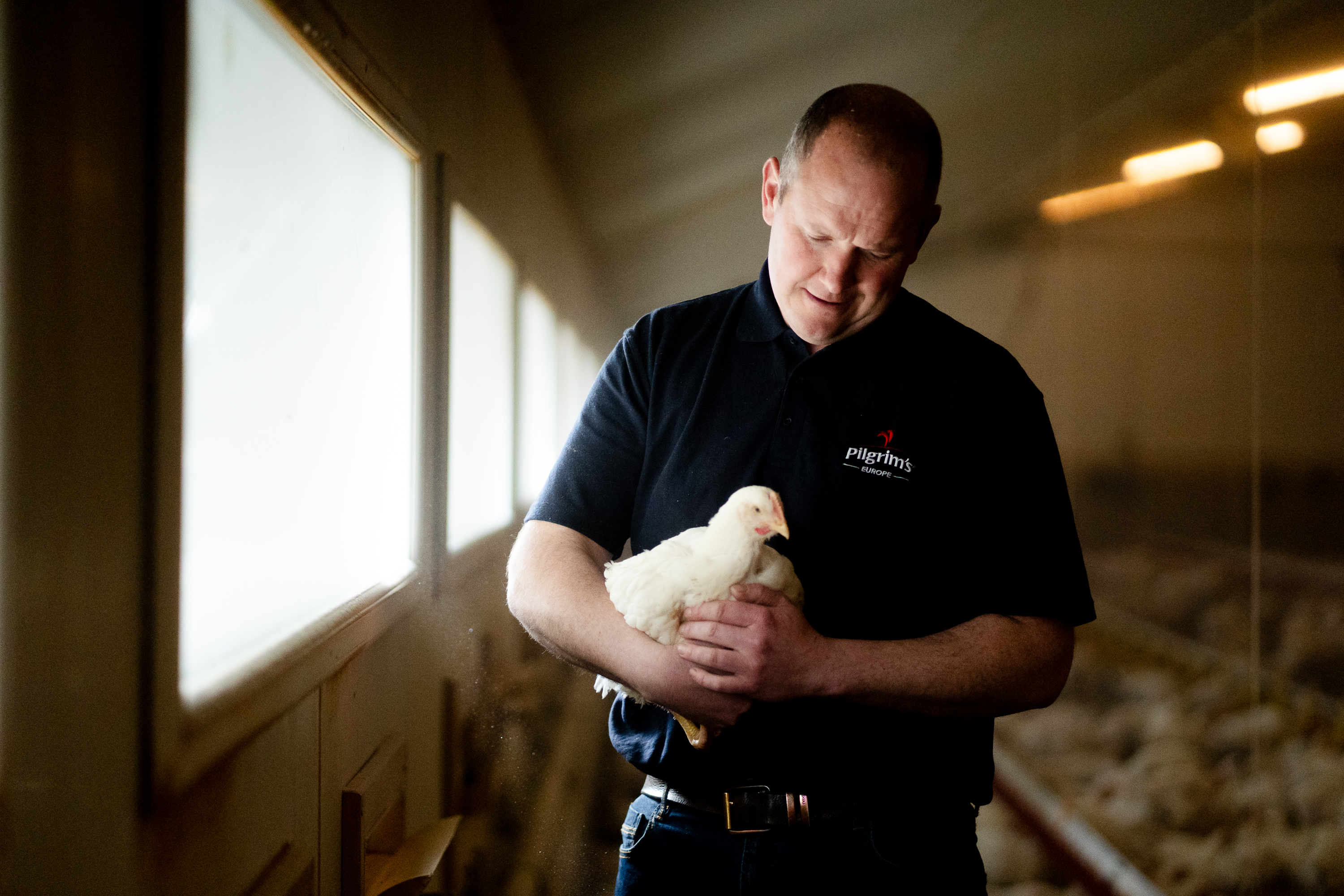How to make the sharing economy work for you
Have you heard of the ‘sharing economy’? If not, it’s time you did.


According to a recent report by Pricewaterhouse-Coopers (PwC), ‘access is the new ownership’, whether that refers to properties, cars or other assets. In the UK alone, the ‘sharing economy’ is estimated to be worth £500 million and growing 25% year-on-year. To many, says PwC, ‘owning feels like a burden’, which goes some way to explaining why short lets and house swaps in particular are on the increase. If you want a bigger return on your investment or simply to travel more affordably, sharing your house or holiday home is worth considering.
Airbnb Of the many businesses driving this phenomenon, Airbnb, with more than a million properties in 190 countries, is probably the most recognisable (www.airbnb.com). Anyone can join and any home is eligible, from basement rooms in hip urban town houses to rambling castles in out-of-the-way places and everything in between.
As an owner, you’re not locked into a minimum availability, it costs nothing to join and Airbnb only asks for 3% of your nightly rental price in return for appearing on the site.
If you’re not an established B&B owner (although many on the site already are), the biggest hurdle to committing is the thought of inviting strangers into your home. In fact, none of these ‘sharing economy’ businesses can hope to thrive without fostering a sense of trust and community between members. Airbnb ensures that all guests and owners are fully profiled on the site.
Rupert and Sarah Foster have been renting out the cottage adjoining their house in North Yorkshire through Airbnb for a year and, so far, haven’t encountered a problem. Sarah explains: ‘You can check out the profile of guests before they arrive and visitors are asked to tell their hosts a bit about themselves when they book. Both guests and owners are encouraged to review their visit, ensuring that tricky people are exposed and can be avoided in the future.’
In addition, Sarah says: ‘There are no financial complications because visitors pay via the site when they book and Airbnb pays the owner 24 hours after the guests arrive.’
Silvy McQuiston has rented out her cottage in Wiltshire through Airbnb for nearly two years. She has some advice for would-be hosts: ‘Your profile is your advert, so you need to ensure that you appear friendly and approachable and be consistent with your profile when the guests arrive. Air- bnb-ers respond well to a personal touch, but, you need to know when to pull back if they want their space.’
Sign up for the Country Life Newsletter
Exquisite houses, the beauty of Nature, and how to get the most from your life, straight to your inbox.
Silvy’s experience of the negatives is small: ‘Sometimes, people give less notice than they might with conventional B&Bs. I had one man from Hawaii who rang from the airport and asked if he could stay that night, for example. But you can always change your settings if you need more notice.’
Sarah adds: ‘If I used a conventional agency, it might put work into making sure our cottage would be fully booked. This way, it’s all down to me and I have no guarantee. On the other hand, Airbnb only takes a small cut, so I can charge less.’
Onefinestay At the exclusive end of the market, companies such as onefinestay (OFS) (www.onefinestay.com) are offering opportunities to let your home short-term to an expanding number of tourists and business people looking to live like a local (albeit a wealthy one) without compromising on hotel-style amenities. OFS has a portfolio of properties in London, Paris, New York and Los Angeles and competition to join its roster is fierce—the company receives hundreds of applications each week and chooses only the best 10%.
Interior style and location are key (here, members are currently limited to properties in central London, for example). Unlike Airbnb, there is no requirement of the host beyond making sure they’re off the premises. In return, OFS promises that, typically, you’ll receive a rate comparable to the long-term rental yield of your home for that period.
Alan Green’s two-bedroom flat in West Kensington has been available via OFS for roughly three years, filling the flat for roughly 80% of the time that he’s away. ‘So far, it’s worked really well,’ he says. ‘OFS takes care of everything. I head off, whereupon it moves in and gives the place a “hotel clean” and makes up all the beds with its own linen. It also provides towels and even toiletries. When the guests leave, everything is cleared away and I return to find everything exactly as I left it.’
Any concerns about personal property are taken care of: OFS recommends that hosts remove any valuables and it photographs everything that’s left and tapes up any cupboard doors it doesn’t want guests to open. It also offers an insurance policy to supplement your existing contents policy for absolute peace of mind.
House swaps Another offshoot of the ‘sharing economy’ is the increase in house swaps. Think Kate Winslet in The Holiday, in which she exchanges her chocolate-box country cottage for Cameron Diaz’s LA super pad. Companies such as Love Home Swap (www.lovehomeswap.com), Vive Unique (www.viveunique.com) and Snow Swappers (www.snowswappers.com, for ski-chalet owners) have mush- roomed in response to the demand and the number of good-quality homes available on these sites is increasing.
A quick scan of Love Home Swap, which offers 70,000 homes worldwide, throws up a Grade II-listed Jacobean mansion in Berkshire, a Georgian town house in Oxford and more Cotswold cottages than you can shake a stick at. Join its ranks and trips to Thailand, Canada and New Zealand could be within your grasp. At the luxury end, 3rd Home (www.3rdhome.com) bills itself as ‘a reciprocal travel club for luxury second home owners’, which means you can use your second home as a passport by letting it out to other members of the club. No money changes hands between owners (membership is currently free) and owners simply build up a stock of credits or virtual money, called keys, which they can use against stays in other 3rd Home properties, paying an ‘exchange fee’ to the company based on the size of the property and keys used (varying between £255 and £641 per week).
Londoners Gaelle and Marc Deschamps, whose second home is a château in the Loire valley, have been 3rd Home members for three years. Gaelle explains: ‘The great advantage is that you gain access to amazing properties that could ordinarily cost anything from £5,000 to £10,000 to rent per week. Although you’re losing the rental cost of your own property, it doesn’t hurt as much as paying for your holiday direct.’
She adds: ‘It also rids you of the mental guilt of not going to your second home for holidays. On the negative side, the keys only have a 12-month lifespan so you have to make sure you use them before they expire.’ Gaelle’s advice is as follows: ‘Have a holiday strategy so you know how you will use the keys—for example, two weeks’ skiing, two weeks in the sun—and make it happen.’
So far, the Deschamps have been to 3rd Home properties all over the world, including Vietnam, the Dominican Republic and Trinidad and Tobago. Open your home to outsiders and see where it leads you.
Need to know
Images: The high-end companies will do this for you, but with Airbnb, it’s down to you.
Approach: it as you might a dating website: the better the pictures, the more interest you attract. Hide grubby dog beds, catch the garden at its best and tell everyone why your house (and area) is the answer to all their holiday problems. Don’t include pictures of local attractions.
Profile: Think about who you’re trying to attract and tell them what they want to hear. People with young families will love the chance to play with someone else’s toys, walkers who crave solitude will love the fact you’re miles from anywhere.
Personalise: Make sure your house is clut- ter-free and clean. At the same time, don’t attempt to erase the personality from your home—if your guests wanted sterile, they would have booked a hotel.
Guides: Provide your guests with insider recommendations for the best local res- taurants, pubs, garden openings and places to visit.
Insurance: Historically a tricky area, but improving by the day—it’s worth consult- ing the individual companies’ arrangements and your own buildings and contents broker. Don’t take any chances with your belongings: remove or lock away any valuables.
Tax: There is no tax to pay on a house swap because no money changes hands, however, income generated through renting rooms will obviously need to be declared on your tax return. If you’re renting a room in your home (rather than an entire property), you could qualify under the Rent a Room Scheme, which is an annual tax-free allowance of £4,250 a year; the Government is intending to increase this to £7,500 in April 2016 NB If you find a family who enjoy your house and vice versa, foster that relationship and you could repeat the process in the future.
Country Life is unlike any other magazine: the only glossy weekly on the newsstand and the only magazine that has been guest-edited by HRH The King not once, but twice. It is a celebration of modern rural life and all its diverse joys and pleasures — that was first published in Queen Victoria's Diamond Jubilee year. Our eclectic mixture of witty and informative content — from the most up-to-date property news and commentary and a coveted glimpse inside some of the UK's best houses and gardens, to gardening, the arts and interior design, written by experts in their field — still cannot be found in print or online, anywhere else.
-
 A Grecian masterpiece that might be one of the nation's finest homes comes up for sale in Kent
A Grecian masterpiece that might be one of the nation's finest homes comes up for sale in KentGrade I-listed Holwood House sits in 40 acres of private parkland just 15 miles from central London. It is spectacular.
By Penny Churchill Published
-
 What the cluck? Waitrose announces ‘trailblazing’ pledge to help improve chicken welfare standards
What the cluck? Waitrose announces ‘trailblazing’ pledge to help improve chicken welfare standardsWaitrose has signed up to the Better Chicken Commitment, but does the scheme leave Britain open to inferior imports?
By Jane Wheatley Published
